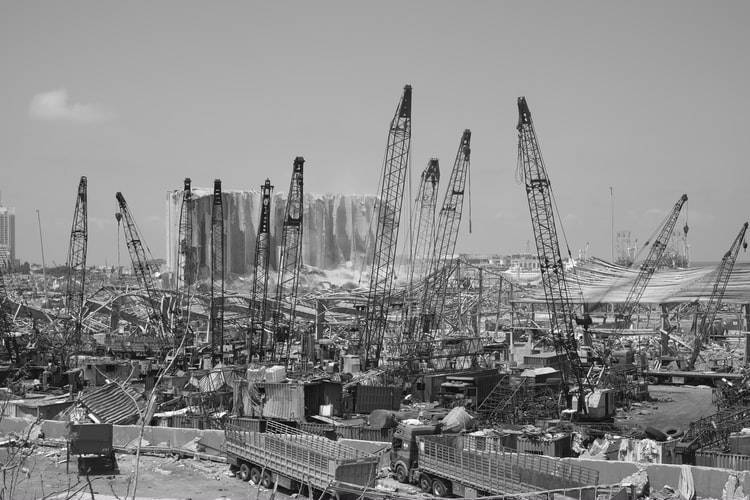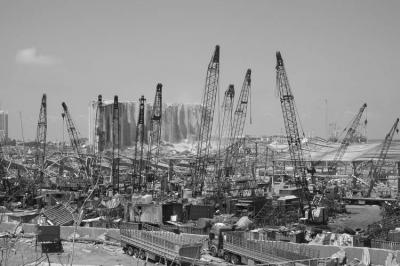The newspaper "Al-Akhbar" reported: The intersecting interests system is functioning powerfully in Lebanon at this moment. However, it often comes at the expense of the strength of state institutions on one hand, without guaranteeing the rights of the people on the other. The result is frequently a further erosion of people's trust in those managing their affairs, both in power and beyond. The latest "creations" of the ruling allies involve a tacit agreement to provide comprehensive protection for the Banking Party, the banks, and the Governor of the Bank of Lebanon against judicial actions in Lebanon, while obstructing ongoing investigations abroad. This agreement sees President Najib Mikati obtaining initial approval from Parliament Speaker Nabih Berri, former Prime Minister Saad Hariri, Hezbollah, and Progressive Socialist Party leader Walid Jumblatt for the dismissal of the Attorney General Ghassan Ouidat from his position, preparing for an uncertain swap with President Michel Aoun, Maronite Patriarch Bechara al-Rai, and Free Patriotic Movement leader Gebran Bassil, leading to the simultaneous dismissal of the head of the Supreme Judicial Council, Souhail Abboud. This arrangement allows everyone to be a "winner." The party wishing to rid themselves of Ouidat, who refused requests to suspend investigations into the governor and banks, benefits, while the faction seeking to remove Abboud wins due to his political ambitions and presidential aspirations, alongside his role in covering up the violations of the judicial investigator into the Beirut Port explosion, Tarek Bitar.
This situation was not limited to just that, as a lengthy meeting of the Supreme Judicial Council was held the day before yesterday, concluding with the appointment of heads of vacant chambers of the Court of Cassation—Judges: Naji Eid, Sanya Nasr, Majed Mzeihim, Munif Barakat, Ayman Ouidat, and Habib Rizqallah. The session was a surprise within judicial circles, especially since Judge Abboud had previously blocked these appointments for months, as he could not impose the names he wanted to ensure support within the council. However, the Attorney General Ghassan Ouidat's opposition to this matter prevented Abboud from achieving his goal, especially since Ouidat strongly opposed names Abboud sought to impose, like Judge Randa Kfoury.
However, recent developments have changed the situation. Suddenly, Abboud rushed to call for a session and held it, asserting during it the need to complete the appointments, raising questions among council members about what motivated this urgency, beyond the new "harmony" between him and Ouidat, knowing that they had been at odds lately. What prompted Abboud to take a step back, and why did Ouidat meet him halfway?
Informed sources say that "Abboud sensed there was a serious effort to appoint another president for the judiciary council and that political consultations were occurring concerning this, which would also involve Ouidat." In this context, informed sources recount that the idea of "changes in judicial positions this time came from President Mikati, knowing he had previously undermined the settlement proposed to resolve the issue of the investigator in the Beirut Port explosion, which involved changing four senior judges: Souhail Abboud, Ghassan Ouidat, Burkan Saad, and Ali Ibrahim, which fell through after Speaker Nabih Berri refused to remove Ibrahim and Mikati opposed touching Ouidat." The sources said that the session to appoint heads of chambers in the Court of Cassation convened due to Abboud and Ouidat feeling that "this time the issue is serious," suggesting that they "either wanted to imply some responsiveness" or "someone advised Abboud to complete the appointments and activate the investigation files to shelter behind them." The appointments made in the vacant positions would allow the plenary assembly of the Court of Cassation to convene and return to normal work after achieving a quorum, enabling it to decide on pending cases, most notably the port file.
The sources indicate that "Mikati is acting this time from the background of Ouidat's rebellion in the bank file, with the support of Saad Hariri," pointing out that "there are communications concerning this matter that have not yet reached conclusions." "Al-Akhbar" learned that "the change will not affect Ouidat alone; discussions are also revolving around Abboud," and that this agreement is "nearly finalized between Berri and Mikati, who was visited by MP Ali Hassan Khalil a few days ago."
However, there is an additional reason for Mikati, concerning accusations against Ouidat that he was a party to a letter sent from Lebanon to France and then to the Principality of Monaco, which ultimately involved a request for judicial assistance regarding the properties of the Mikati family in the principality overseen by a family member there.
Meanwhile, informed sources express skepticism about these consultations reaching the "desired" conclusions, viewing that "any consultations with Mikati are unpredictable, especially since he does not adhere to what he says," despite being this time "leading the war on behalf of the Governor of the Central Bank, Riad Salameh, and the banks," and is "willing to take any action for this protection, even if it means the overthrow of some figures he previously refrained from touching." The sources considered that "the step to oust Ouidat and send him home, as Mikati previously stated, is likely to be followed by other steps impacting anyone approaching Salameh and the banks," referencing Judge Ghada Aoun. As of now, the position of President Michel Aoun regarding all that Mikati is preparing remains unknown, pending his return from the Vatican.




